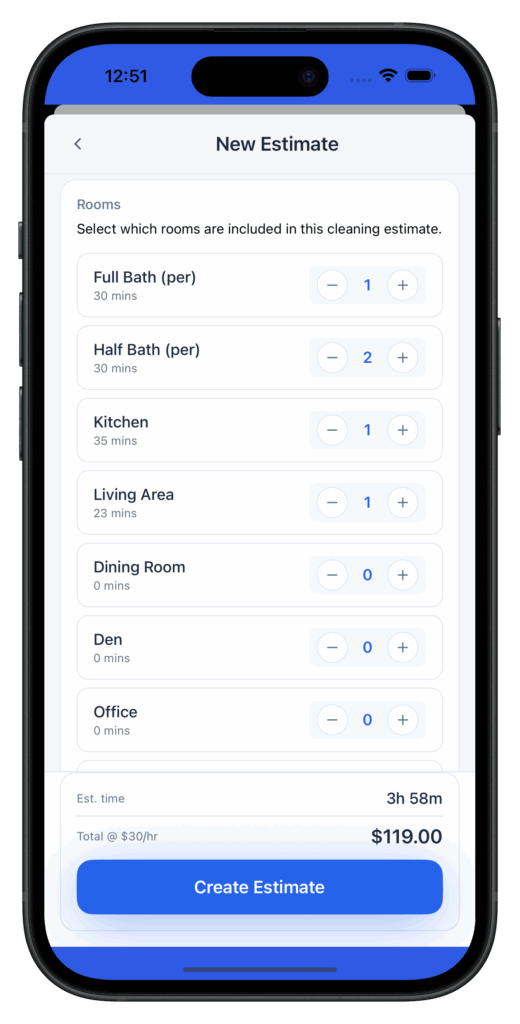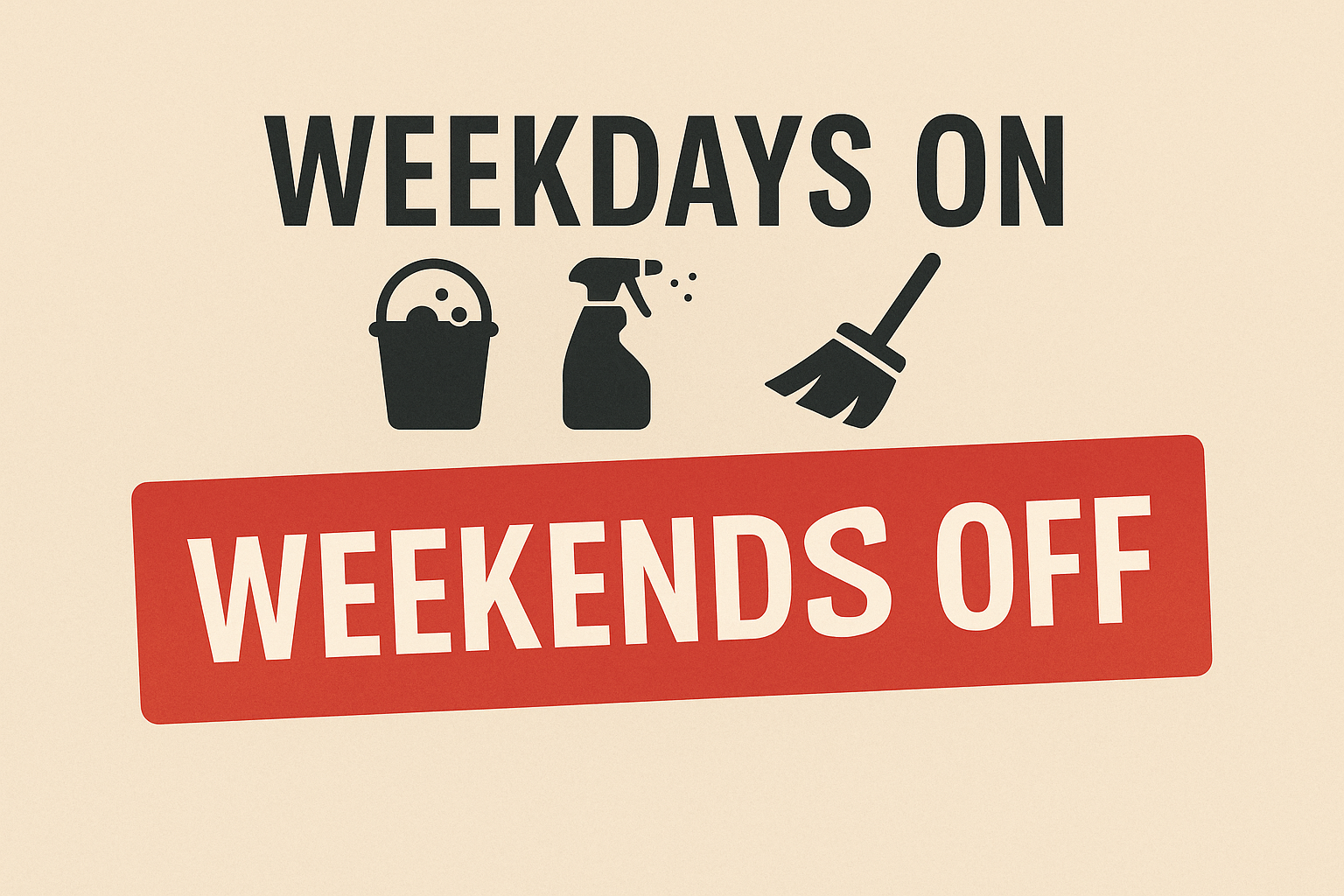Introduction: Why Weekends Off Feel Impossible in the Cleaning Industry
When I first started my solo cleaning business, I worked weekends out of fear — fear of losing clients, income, or momentum. Before I knew it, Saturdays turned into full shifts and Sundays were used for catch-up, quotes, or supplies. I was always “on.”
Eventually, I burned out. My relationships suffered. My body felt wrecked. I realized I hadn’t taken a weekend off in over a year.
Sound familiar?
Whether you’re a solo cleaner trying to grow, or you’ve hired a small team and want more balance, taking weekends off feels risky. But here’s the truth: scheduling time off isn’t just possible — it’s a competitive advantage.
This blog breaks down seven tested strategies I used (and still use) to create a cleaning business schedule that gives me weekends off without sacrificing revenue or client retention.
1. Shift Your Ideal Client Profile (ICP) to Weekday-Only Customers
Why it matters:
Not all clients are created equal. Many residential clients prefer weekend appointments. But there’s a large segment — especially professionals and retirees — who are available during weekdays and respect boundaries.
What I did:
- I reviewed my client list and identified weekday-flexible clients.
- I started saying no to new weekend inquiries.
- I rewrote my marketing to say: “Weekday cleanings only — limited availability.”
How to do it:
- Create a client intake form with your availability stated upfront
- Add this language to your website and Google Business profile
- Ask existing clients during rebooking: “Would a weekday slot work better for you long-term?”
Result:
In 3 months, 75% of my clients were weekday-only. I earned the same — with weekends off.
Pro Tip: Don’t just market to everyone. Market to people who already want the schedule you want to live.
2. Batch Your Cleanings into 4–5 Core Days
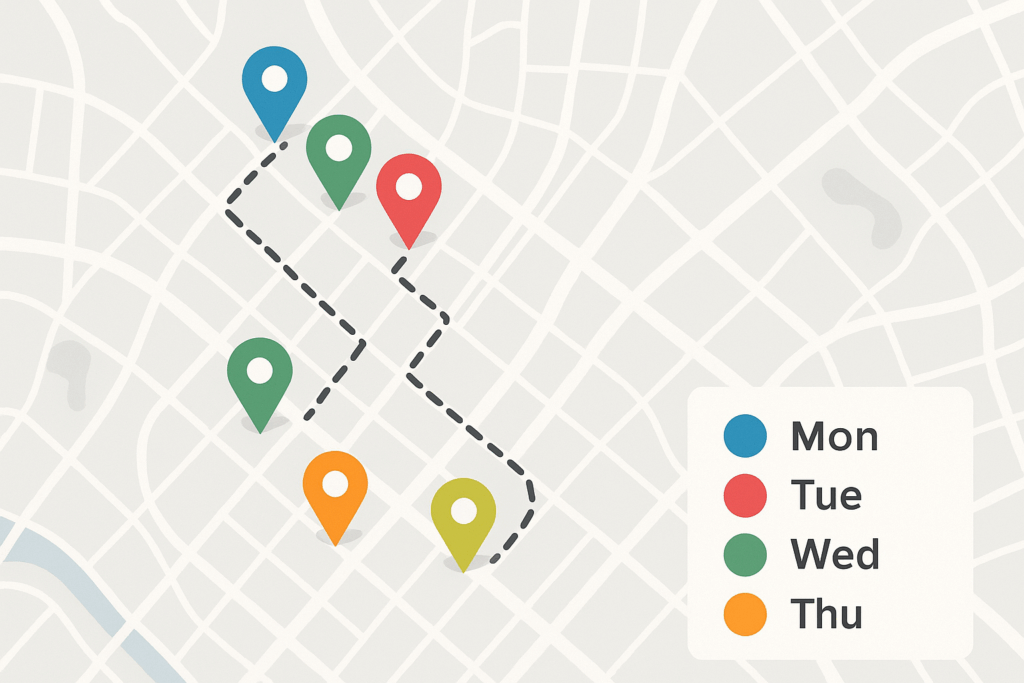
Why it works:
Batching reduces travel time, increases daily revenue, and creates natural breaks. Most cleaners stretch jobs across the whole week. That’s a mistake.
What I changed:
- Monday to Thursday were cleaning days
- Friday was for admin, quotes, training, or high-priority VIP clients
How to do it:
- Use a scheduling app to cluster jobs by ZIP code and day
- Stack 2–3 jobs/day (solo) or split teams between AM/PM slots
- Leave buffer time for overages or traffic
Sample Solo Schedule:
Monday: Deep cleans x2 (close ZIP) Tuesday: Maintenance cleans x3 Wednesday: Apartment turnovers (same building) Thursday: Light cleans + supply run Friday: Quotes, invoices, planning Sat/Sun: Off
Real-World Example:
When I shifted from 6-day workweeks to 4-day batching, my income stayed the same, but I got back 104 weekend days a year.
3. Set a Non-Negotiable Weekend Boundary (and Communicate It Clearly)
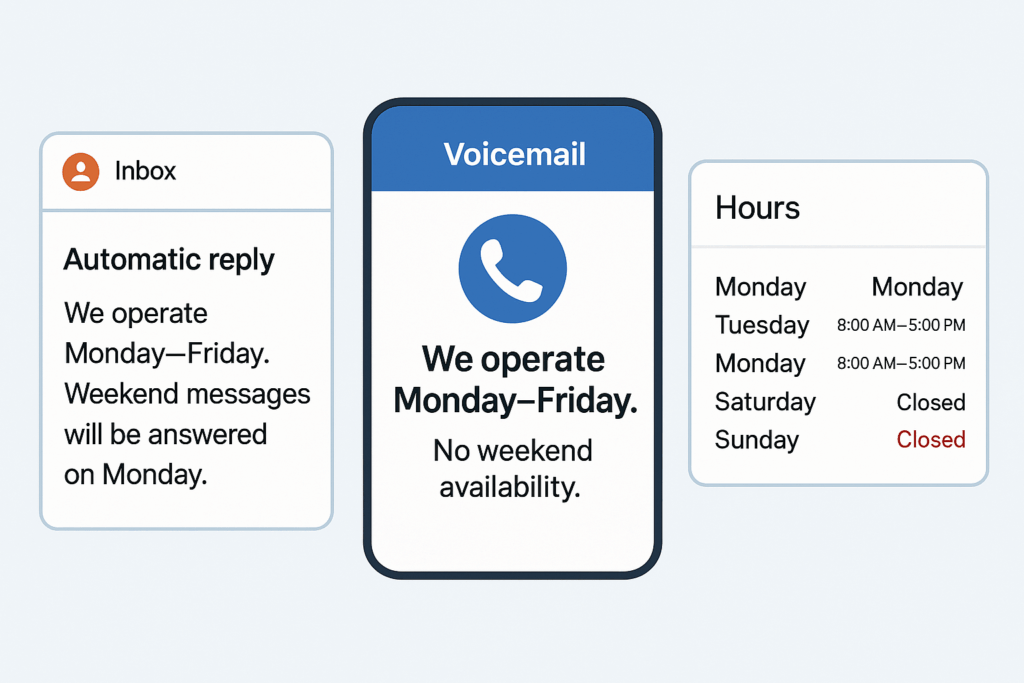
Why it works:
Your clients don’t set your schedule — you do. But only if you communicate it upfront, clearly, and confidently.
How I framed it:
- “We operate Monday through Friday — no weekend availability.”
- Included it in onboarding emails, quote forms, voicemail, and Google profile
- Used a friendly but firm tone: “We believe rest makes us better cleaners.”
Tools That Help:
- Gmail auto-responders for after-hours
- Quote form auto-replies (Google Forms or Jotform)
- Business hours posted on Facebook, Google, website
What happened:
I lost 2 clients. But I gained 7 new ones who respected my boundaries.
Clients mirror your energy. If you act like weekends off are standard, they will too.
4. Raise Your Prices to Offset Fewer Days Worked
Reality check:
If you want weekends off and want to maintain income, you need to charge more. But here’s the kicker — most cleaners are undercharging anyway.
My data:
When I raised rates by 20%, I lost 3 clients — but made more money overall. And my schedule became easier to manage.
How to do it:
- Use tiered pricing: Standard (weekday), Premium (limited spots), Deep Clean (higher rate)
- Present it confidently: “We’ve adjusted rates to reflect quality, demand, and availability.”
- Reframe pricing around outcomes, not time: “We don’t charge by the hour — we charge for results.”
Stat to know:
According to ISSA (2024), the average hourly rate for residential cleaning is $45–$70/hour. If you’re below that — raise it.
Bonus Script:
“We’re shifting to weekday-only scheduling and enhancing our service quality. Rates will reflect this value. We appreciate clients who value consistency and excellence.”
5. Hire Weekend-Only Staff (If You’re Scaling)
If you’re growing and still getting weekend requests, use them strategically — but not by working them yourself.
What worked for me:
I hired two cleaners who wanted weekend hours. I offered a slightly higher rate ($2 more/hour) and gave them flexible shifts.
Why this works:
- You still capture weekend revenue
- Your core team (or you) gets rest
- You build retention by offering flexible hours
How to find weekend-only staff:
- Facebook cleaning job groups
- Local community boards (churches, schools)
- Part-time gig seekers who already work weekdays elsewhere
Use tools like:
- Homebase or Sling for staff scheduling
- Google Calendar for recurring job blocks
Delegation isn’t about control — it’s about freedom.
6. Use Automation to Reduce Off-Hours Admin Work
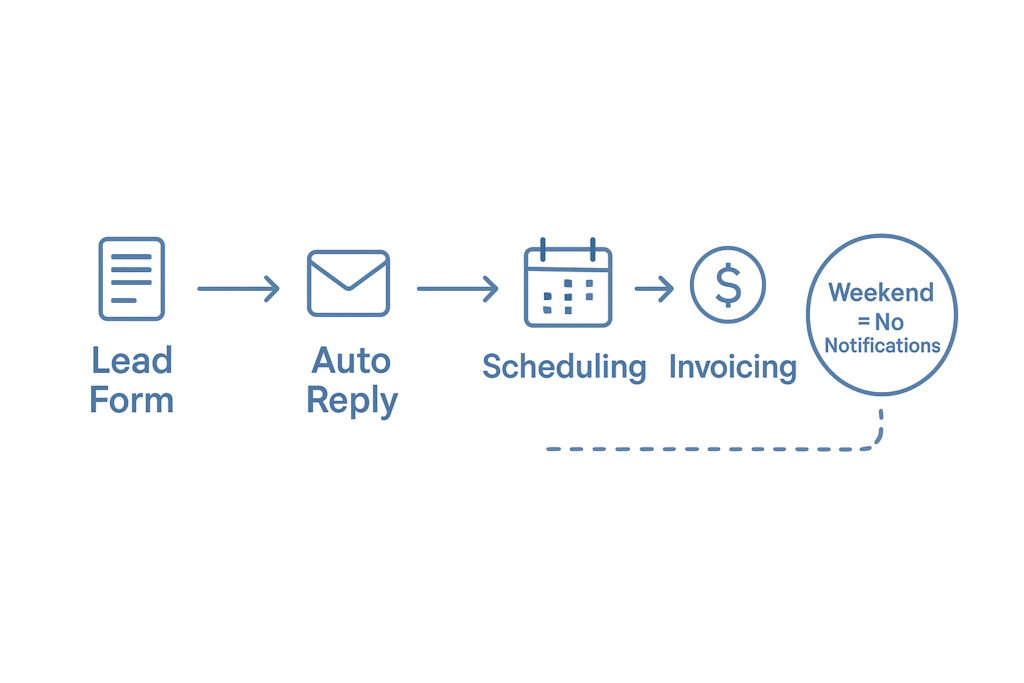
The trap:
Even if you don’t clean on weekends, you might still be responding to emails, quotes, and DMs. That’s not true time off.
What I implemented:
- Automated quote response using Google Forms + Calendly
- Set email auto-responders: “We respond during business hours (Mon–Fri).”
- Used Jobber to batch and automate recurring invoices
Other Tools That Save Time:
- Zapier (automate tasks between platforms)
- Voxer (for internal team voice communication)
- TextExpander (for sending canned responses fast)
Outcome:
I cut my weekend admin work by 90%. Clients appreciated the boundaries — and I had time for family.
True weekends off means no phone-checking, no invoice-sending, no client DMs. Build systems so the business doesn’t depend on your weekend availability.
7. Replace Hustle Culture with Systems Thinking
Let’s be honest:
Most of us think working more = earning more. That’s hustle culture. And it leads straight to burnout.
The shift:
Instead of asking: “How can I fit more jobs in?” — start asking:
- “What’s the least I can work to earn what I want?”
- “Where am I wasting time, energy, or money?”
What helped:
- Time tracking: Found 6+ hours/week lost to travel + admin
- Route optimization: Saved $300/month in fuel
- Delegating laundry: Gained back 3 hours/week
- Created a task SOP for my assistant
Stat to consider:
Burnout is the #1 reason solo cleaners quit, according to Cleaning Business Today (2024). Systems, not hustle, create longevity.
The Bureau of Labor Statistics projects demand for cleaners to grow 6% through 2025. But burnout is killing growth.
Final Thoughts: Weekends Off Are a Business Strategy, Not a Luxury
You don’t need to earn the right to rest. You just need to design your business to support it.
Whether you’re solo, running a small team, or rebuilding from burnout — weekends off aren’t a dream. They’re a schedule decision, a pricing decision, and a mindset decision.
And when you make that shift?
Your business becomes more sustainable. Your clients respect your boundaries. Your body recovers. And you remember why you started this business in the first place.
You’re not lazy for taking weekends off — you’re smart for making it work.
